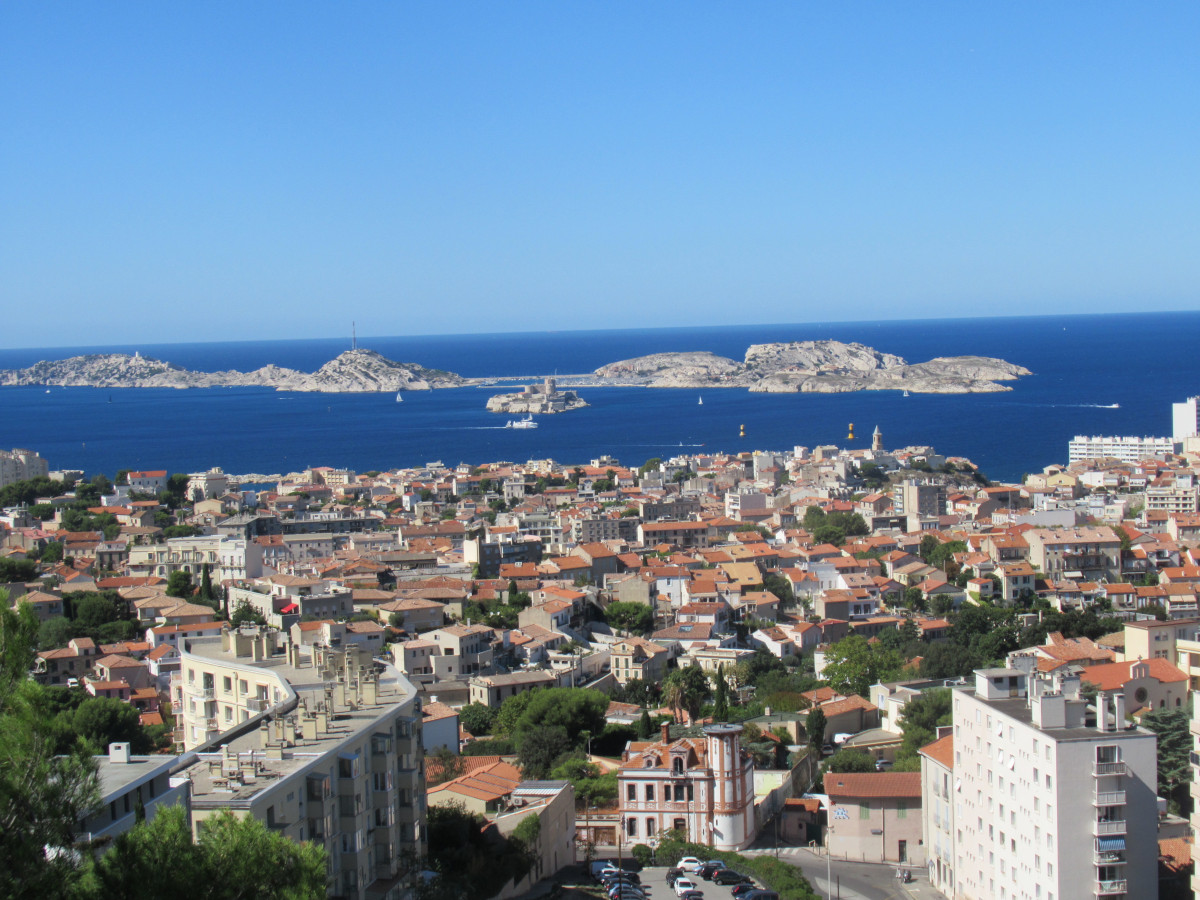Our Marseille Anthology includes some travel writing, plus a range of fiction pieces set in the city, from detective stories to the opening chapters of the Count of Monte Cristo which recount the hero’s escape from imprisonment in the Château d’If. Between them, the authors take you around the city, into its restaurants and down to the depths of the underwater caves where prehistoric man left his artwork. There are longer extracts on the podcast. See the previous episode for details of the area’s best-known writer, Marcel Pagnol, and his work.
arriving in marseille
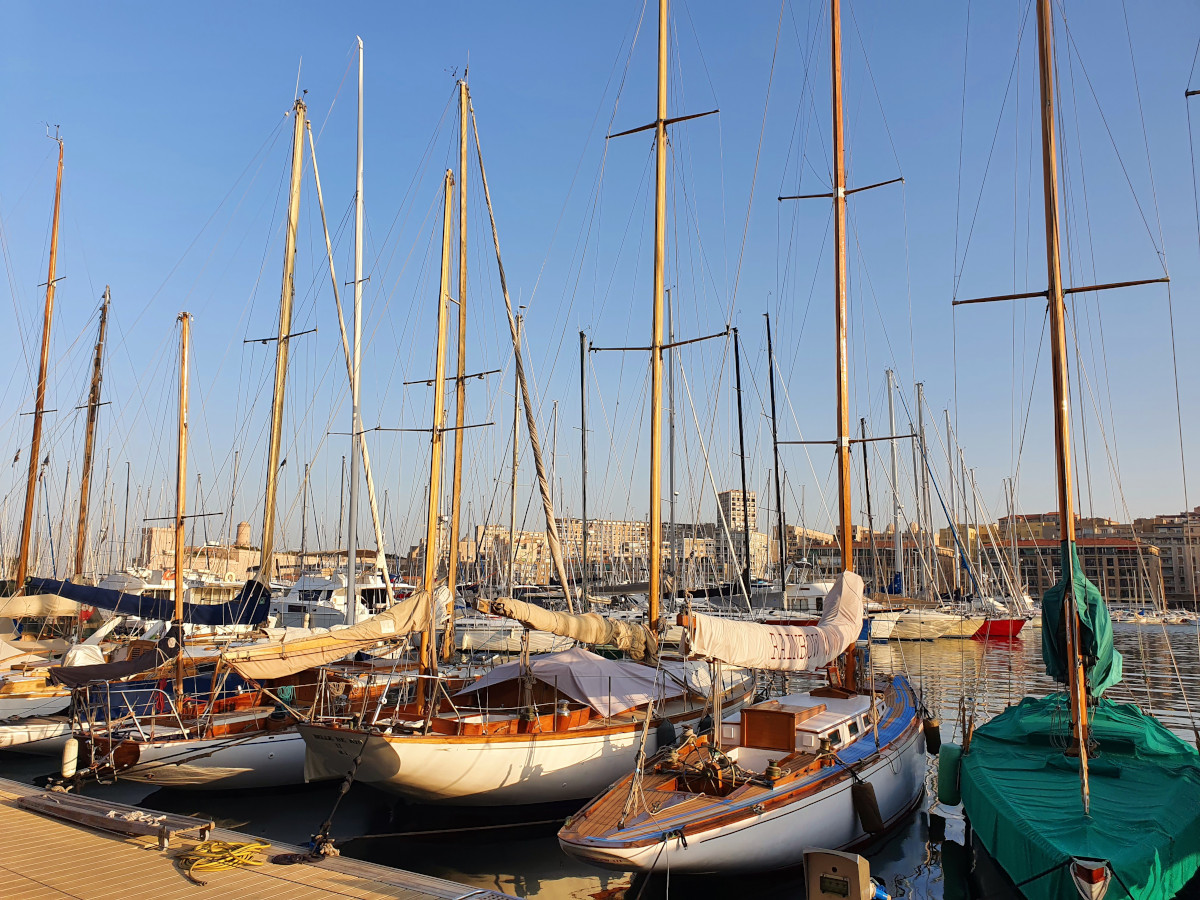

The podcast opens with an extract from Nicholas Hewitt’s Wicked City, describing the arrival into Marseille of train travellers in 1939. They were only 11 hours from Paris, but felt as if they’d arrived in a country which was ‘entirely foreign.’ They saw the hillsides on either side of the harbour – Le Panier and the escarpment topped by Notre Dame de la Garde – and the Frioul Islands and the Château d’If just off the entrance to the Old Harbour. They had reached the gateway to North Africa and, through the Suez Canal, to the East. It was, writes Hewitt, ‘one of the most spectacular deep-water ports of Europe’.
marseille: city and countryside
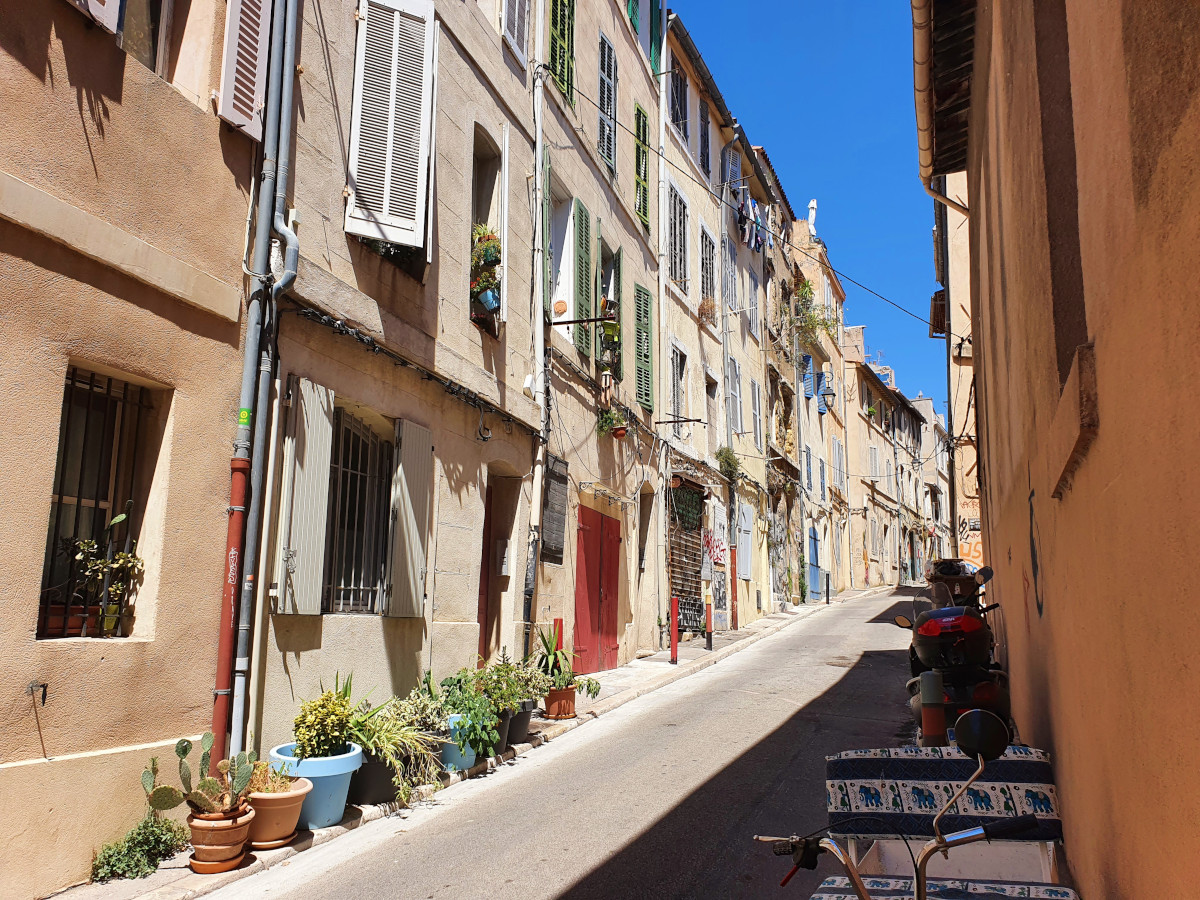
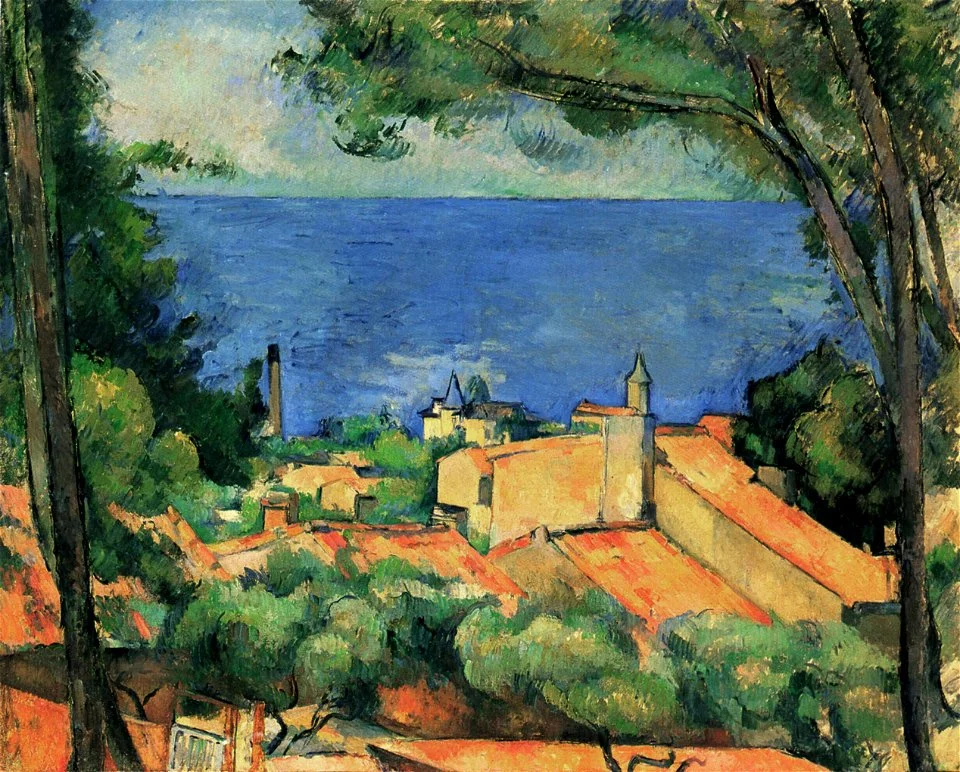
Marseille author Jean-Claude Izzo sprinkled descriptions of the city into all his detective novels. In a passage which was surely autobiographical, he described one character walking up into Le Panier, the district where he’d been born, and recalling the life his Italian immigrant parents led there in the 1930s. Dad was a low-paid dock-worker, Mum worked 14 hours a day packing dates, but in the evenings they and their neighbours sat out in front of their houses, chatting and recalling the good old days in the Italy they’d left behind.
The writer Simone de Beauvoir spent a year in Marseille as a young teacher and went walking in the surrounding hills every weekend, through landscapes she described as ‘like a Cézanne canvas’. She climbed the hills, clambered down into the calanques and wrote that at every viewpoint a revelation awaited her: ‘The beauty of the countryside’, she wrote, ‘always surpassed my recollection and my expectation.’
the wicked city


In From Deauville to Monte Carlo, Basil Woon recalled the dark side of the city in the 1920s. ’Thieves, cut-throats and other undesirables throng the narrow alleys and sisters of scarlet sit in the doorways of their places of business, catching you by the sleeve as you pass by. The dregs of the world are here unsifted ….. Marseille is the world’s wickedest port.’
In Evelyn Waugh’s Decline and Fall, the hapless hero, Paul Pennyfeather, is bemused when a carriage-driver drops him in Marseille’s red light district and advises him to look after his hat. As he makes his way down a narrow, cobbled street, he finds out why. ‘A young lady snatched his hat from his head; he caught a glimpse of her bare leg in a lighted doorway; then she appeared at a window beckoning him to come in and retrieve it.’
the count of monte cristo
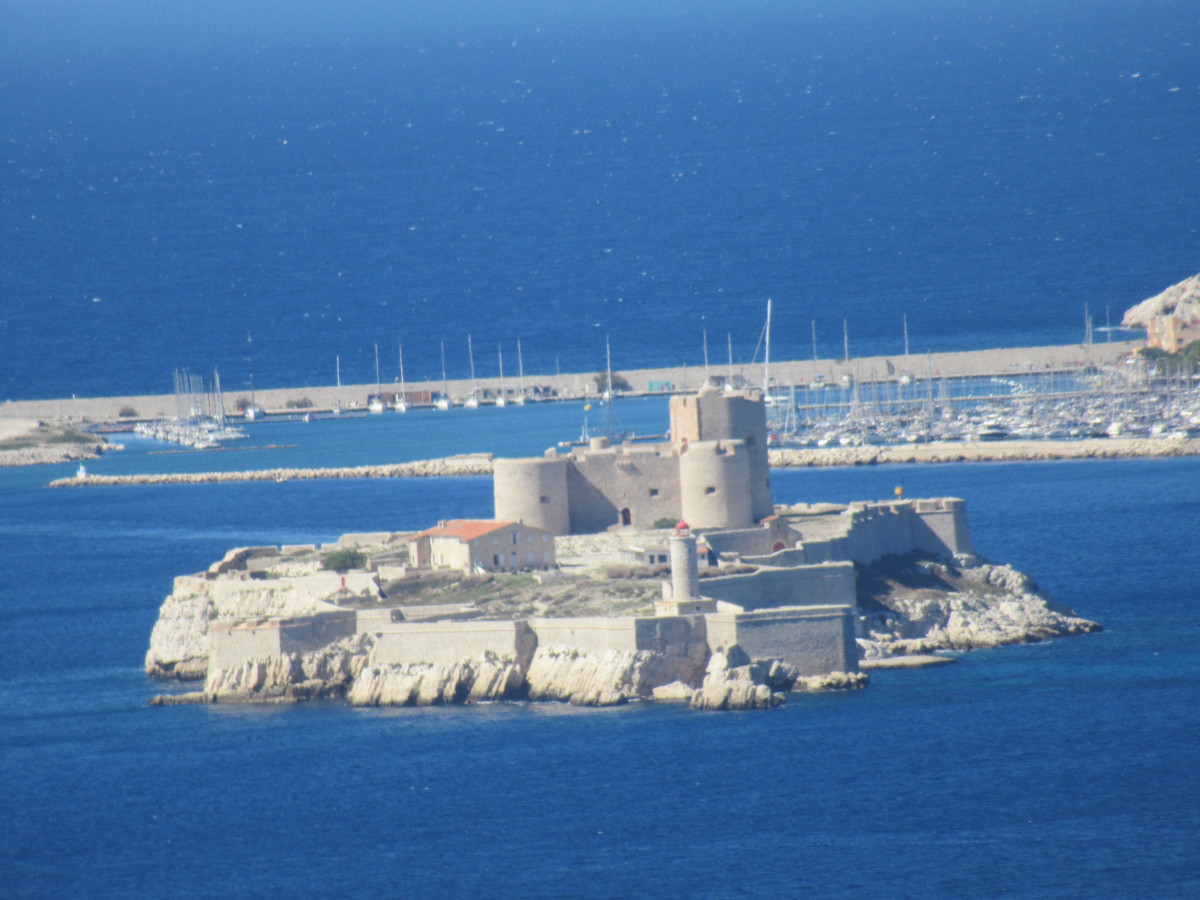

No Marseille anthology is complete without this Alexandre Dumas novel. It features in Episode 07, but on the podcast this time is another extract describing how Edmond Dantès escaped from imprisonment at the Château d’If. He took the place of the dead man in the cell next door, so that the jailers would throw him off the cliffs into the sea. Then he had to swim to the Marseille coastline, fearing he’d be caught at any moment: ‘Every wave that climbed a little higher than the rest looked to him like a boat pursuing him’ until eventually ‘the fearful fortress had faded somewhat into the mists of night; he could no longer see it, but he felt it still.’
2 detective novels

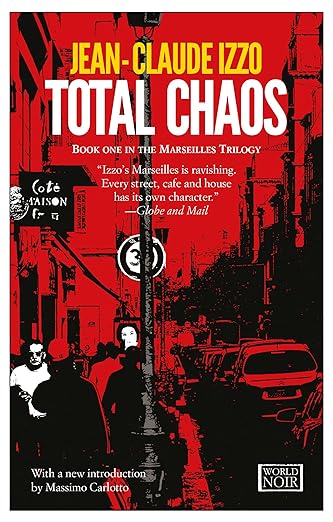
The First Fingerprint, by Xavier-Marie Bonnot, is available in English translation. Mixed in with the murder of a group of archaeologists are some wonderful descriptions of the underwater caves. When the detective, de Palma, went down to investigate, he found ‘a huge, damp, cold gap, which opened like a slit into absolute darkness’. Further inside, his torchlight showed up some prehistoric artwork of eery hand shapes, scraped into the rust-coloured rock and he could feel that ‘The first man was watching him from beyond time.’
In Total Chaos, Jean Claude Izzo mixes a description of the harbourside Bar de la Marine with a menacing threat from the criminal he has gone there to meet. First, they have a meal of fried cuttlefish and aubergine. Then Bastisti, ‘a sly old fox’, responds to the detective’s hints that he knows what skulduggery has led to the death of his friend by saying ‘You’re just a neighbourhood cop. You should stay that way. You have a nice little house, try to keep it …… the advice is free. I’ll pick up the tab.’
the marseille caper


Peter Mayle’s light-hearted novel revolves around the struggle of heroes Sam and Elena to stop criminals winning the contract for a new harbourside project. It contains many asides on Marseille and surroundings, such as the restaurant scene when they order bouillabaisse, described by Sam as ‘messy, but good.’ He lists its ingredients as ‘pretty much anything that swims in the Mediterranean’ and describes the usual accompaniment of rouille, ‘a kind of thick, spicy mayonnaise, with more garlic, more saffron, more olive oil and hot peppers.’ His final advice is that it comes with thin slices of toasted baguette and that to eat it, you need ‘an oversized napkin to cover you from the neck down.’
Listen to the podcast
reading suggestions
Wicked City by Nicholas Hewitt
Total Chaos by Jean-Claude Izzo
Chourmo by Jean-Claude Izzo
Solea by Jean-Claude Izzo
Decline and Fall by Evelyn Waugh
The Count of Monte Cristo by Alexandre Dumas
The First Fingerprint by Xavier-Marie Bonnot
The Marseille Caper by Peter Mayle
links for this post
Previous episode In the Footsteps of Marcel Pagnol
This is the last episode in our Marseille series
Last Updated on November 21, 2024 by Marian Jones

